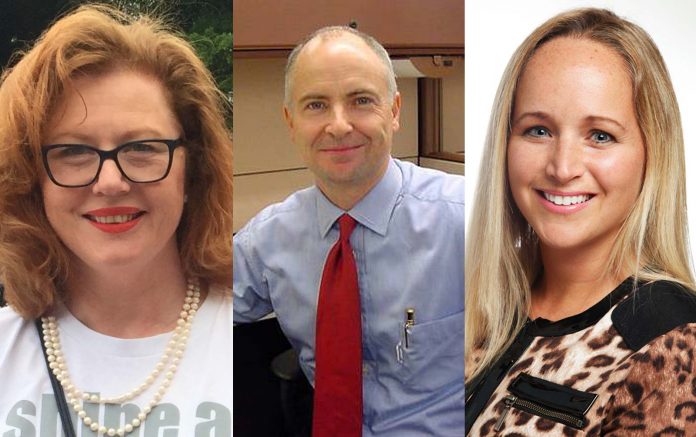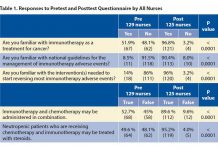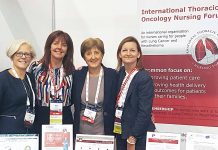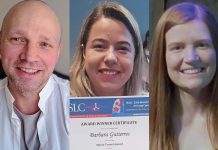By Beth Eaby-Sandy, MSN, CRNP, OCN
As a nurse practitioner in an academic center in the US, I work in a thoracic
medical oncology practice; however, in the US, it is uncommon for nurses or other advanced practice providers to specialize in one cancer disease site. According to the NCI website, 85% of oncology patients in the US receive care in community settings, where disease specialization is uncommon. To that end, in the US, we do not have any type of lung cancer-specific nursing organization.
Interestingly, in other countries, these organizations exist. For example, in the UK, there is the National Lung Cancer Forum for Nurses (NLCFN), a very active organization that, for the past 17 years, has held annual conferences. Likewise, the Australian New Zealand Lung Cancer Nurses Forum (ANZ-LCNF) has held an annual conference 6 years running.
The International Thoracic Oncology Nursing Forum (ITONF) is a recently formed organization that aims to bring together lung cancer nurses from around the world and provide a platform and resources for lung cancer nurses. The ITONF provides a CE-accredited halfday workshop at the IASLC World Conference on Lung Cancer (WCLC) for nurses and other allied health care providers attending the conference. This year, it will take place on December 4, 2016 at the Messe Wien Exhibition and Congress Center in Vienna, Austria, 7:30 am-12 noon, with breakfast included. Please visit www.itonf.com for more information regarding registration.
Recognizing the growing role of nurse practitioners and other allied health care professionals, IASLC, three years ago, formed the IASLC Nurses and Allied Health Professional (AHP) Committee with the aim of enhancing multiple core objectives of IASLC, including the promotion of education, research and science, organizational growth, professional membership, charitable giving and philanthropic relationships, and operational soundness. The main responsibilities of the Nurses and AHP subgroup are to
increase nursing and AHP attendance at WCLC, to strengthen IASLC’s communication
plan to nurses and AHPs, to focus on developing education strategy to reach all nurses and AHPs working in lung cancer across the globe, to promote research activity and support, and to increase membership of nurses and AHP. The committee membership is evolving and now includes representatives from key national and international nursing
organizations.
John White, RN, from LEEDS hospital in the UK has taken over as the chair of the Nurses and AHP Committee. In this role he will lead efforts to integrate nursing and other allied health care professionals into the curriculum for IASLC and the WCLC. Currently, White leads the Macmillan Lung Cancer Nurse Specialist team, which consists of 5 nurse specialists. The cancer unit sees around 550 new lung cancer patients every year, with its main focus on supporting patients from the time cancer is first diagnosed, through clinical investigations, treatment, survivorship, and end-of-life care. They have a very close working relationship with respiratory physicians, oncologists, thoracic surgeons, and palliative care teams on-site. The team is research-active and has just received institutional review board (IRB) approval to run a trial examining the potential benefits of yoga following thoracic surgery. His experience as a professional in this field will greatly benefit IASLC.
This brings up a dilemma. Where do lung cancer nurses and AHPs go for continuing education and networking? In the US, the Oncology Nursing Society (ONS) and the Advanced Practitioner Society for Hematology and Oncology (APSHO) are two organizations with excellent annual conferences as well as publications and regional symposia. However, they are generalized oncology organizations and not specific to lung cancer. Although they serve the needs of most of the oncology nursing and AHP community in the US, as we look forward, there will undoubtedly be increasing specialization in oncology care by disease site and a need for more specialized educational platforms.











